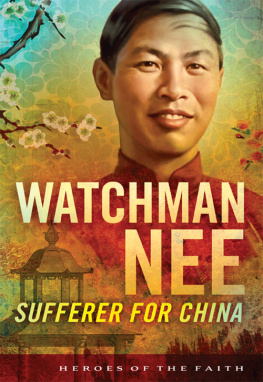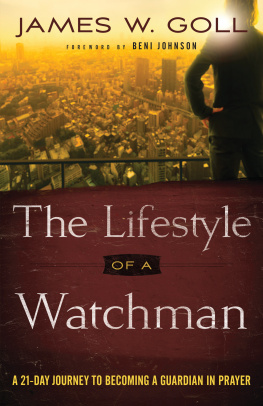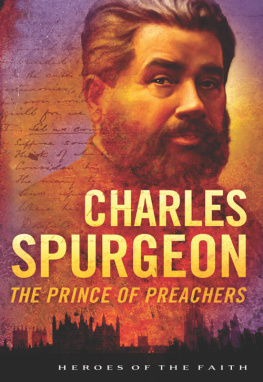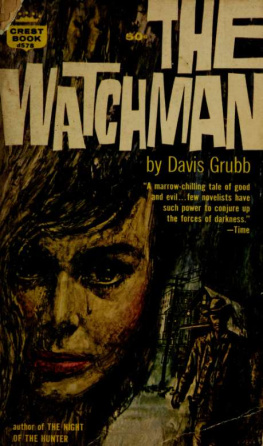
1998 by Barbour Publishing, Inc.
Print ISBN 978-1-62029-709-4
eBook Editions:
Adobe Digital Edition (.epub) 978-1-62416-090-5
Kindle and MobiPocket Edition (.prc) 978-1-62416-089-9
All rights reserved. No part of this publication may be reproduced or transmitted for commercial purposes, except for brief quotations in printed reviews, without written permission of the publisher.
Churches and other noncommercial interests may reproduce portions of this book without the express written permission of Barbour Publishing, provided that the text does not exceed 500 words and that the text is not material quoted from another publisher. When reproducing text from this book, include the following credit line: From Watchman Nee, published by Barbour Publishing, Inc. Used by permission.
All scripture quotations are taken from the King James Version of the Bible.
Cover illustration: Greg Copeland
Cover design: Kirk DouPonce
Published by Barbour Publishing, Inc., P.O. Box 719, Uhrichsville, Ohio 44683, www.barbourbooks.com
Our mission is to publish and distribute inspirational products offering exceptional value and biblical encouragement to the masses.

Printed in the United States of America.
PROLOGUE
In the summer of 1966, at the same time the Beatles were in their London studios recording Sergeant Pepper and Martin Luther King Jr. was marching through the streets of Chicago, the withered form of a Chinese pastor lay crumpled on the rat-infested floor of his four-and-a-half by nine-and-a-half-foot cell. Located on the backstreets of Shanghai, this vast and hideous onetime British prison had been renamed the First Place of Detention by its most recent landlords, the Red Army of the Peoples Republic of China. A better name would have been the Last Place.
After fourteen years of incarceration, the prisoner had made peace with his suffering. Still, last nights beating was perhaps the worst yet. Stirred to a frenzy by Chairman Maos hostile speech in Peking, the Communist Revolution exploded on the beleaguered country. Student Red Guards threw down the gates of the ancient Shanghai prison, looking for counter-revolutionaries to violently molest. They found Watchman Nee.
And now, his shattered right arm twisted at an impossible angle, the prisoner pulled himself awkwardly from the floor to his cot. He gasped for breath, his failing heart pounding through his chest. Over six feet tall and reasonably healthy at the time of his arrest, he now weighed less than one hundred pounds. A coughing fit seized him, and he accidentally knocked his fractured arm against the wall. Pain shot through his entire right side. His eyes filled with involuntary tears, he raised himself up on his one good arm and through gritted teeth he smiled!
It could be worse, he thought. I have not yet suffered to the point of shedding blood, he quoted St. Paul. And there is still the song. There will always be the song.
As the Shanghai sun lost touch with the decaying citys skyline, a warm, baritone voice that defied its broken instrument made its nightly round of the cell block, easing the despair of the lonely inmates and ending at the battered desk of the hapless guard.
Just a few more miles, beloved
And our feet shall ache no more;
No more sin and no more sorrow;
Hush thee, Jesus went before
As he had done on so many other nights, the brown-shirted guard stole through the shadows, past the rheumy eyes peering in the dark, and crouched by the door closest to the song.
And I hear Him sweetly whispering,
Faint not, fear not, still press on;
For it may be over tomorrow;
The long journey will be done.
After a moments silence, the jailer whispered, Pastor Nee, Pastor Nee, are you there?
Your questions are always a marvel, Wong Chu-yen. Yes, I am here, came the reply.
Pastor Nee, your song frightens me. I have not heard it before.
I have not sung it before. Why does it frighten you?
I fear that you are dying.
No, my young friend. I am much too stubborn to die. And besides, He will not let me come home before you believe.
But I do believe. I believe you are the best man Ive ever known.
Then you are far from belief, dear Chu-yen. When you have found Christ, you will know that I am the worst man that I have ever known.
This talk frightens me more than your death. My poor wife begs me to ignore you. If I follow your Christ, I will end up on the wrong side of this door, and she will be all alone.
Without Christ, she is alone now.
Pastor, your words are like hammers on my heart. What must I do to be saved?
My beloved Wong, your questions are always a marvel! Lifting his cadaverous yet radiant face to the ceiling, Watchman Nee softly sang,
Can you hear Him sweetly whispering?
Your journey has just begun
Just as Samson killed more of the enemy at his death than he had in his life, so Watchman Nee touched more lives for Christ from the obscurity of his prison cell than he ever had as a free man. His imprisonment for the crime of being a Christian caught the imagination of Western Christendom. So while his Communist captors ordered that his mail be censored and that he not be allowed to mention even the name of God in his correspondence, untold thousands of books containing his sermons and writings were appearing all over England and the United States. By the time his fifteen-year sentence was up and the authorities had increased it by another five to seven years because he would not deny his faith, Watchman Nee had become a household name in Christian homes everywhere.
His quiet defiance and seemingly hopeless predicament helped to fuel the fires of the remarkable Jesus Movement that swept from coast to coast in the late 1960s and early 1970s. Mostly unknown to the humble pastor, his name became a touchstone for American believers who were distressed about their brothers and sisters in Christ languishing in Chinese prisons.
Both his cause and his person became legendary to those Christians trying not to take their freedom for granted. Rumors spread that his captors had blinded him for leading his prison guards to faith in Christ. But more of his sermons were published after this. Then it was whispered that the Communists cut out his tonguebut still more of his books appeared. Finally, it was said, they cut off his handsonly to find even more of his writings turning up in the hands of those outside the Shanghai prison. Though some of the stories were exaggerated, they showed the deep concern of fellow Christians over the very real persecution of Watchman Nee.
His captivity made him larger than life, and to this day, no Chinese Christian has had more impact on the lives of believers seeking to remain faithful in the United States. What is the true story of Watchman Nee? You are about to discover it, and as you do, may your faith in Christ grow even stronger.
1
FAMILY BACKGROUND
Once, after being viciously criticized by envious colleagues, Watchman Nee was asked by sympathetic friends why he never defended himself. The handsome, young teacher with the perpetual smile replied, Brothers, if people trust us, there is no need to explain; if people do not trust us, there is no use in explaining. In a country known for its wise men and scholars, Watchman Nee was, perhaps, the wisest of all.

